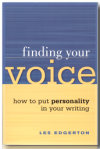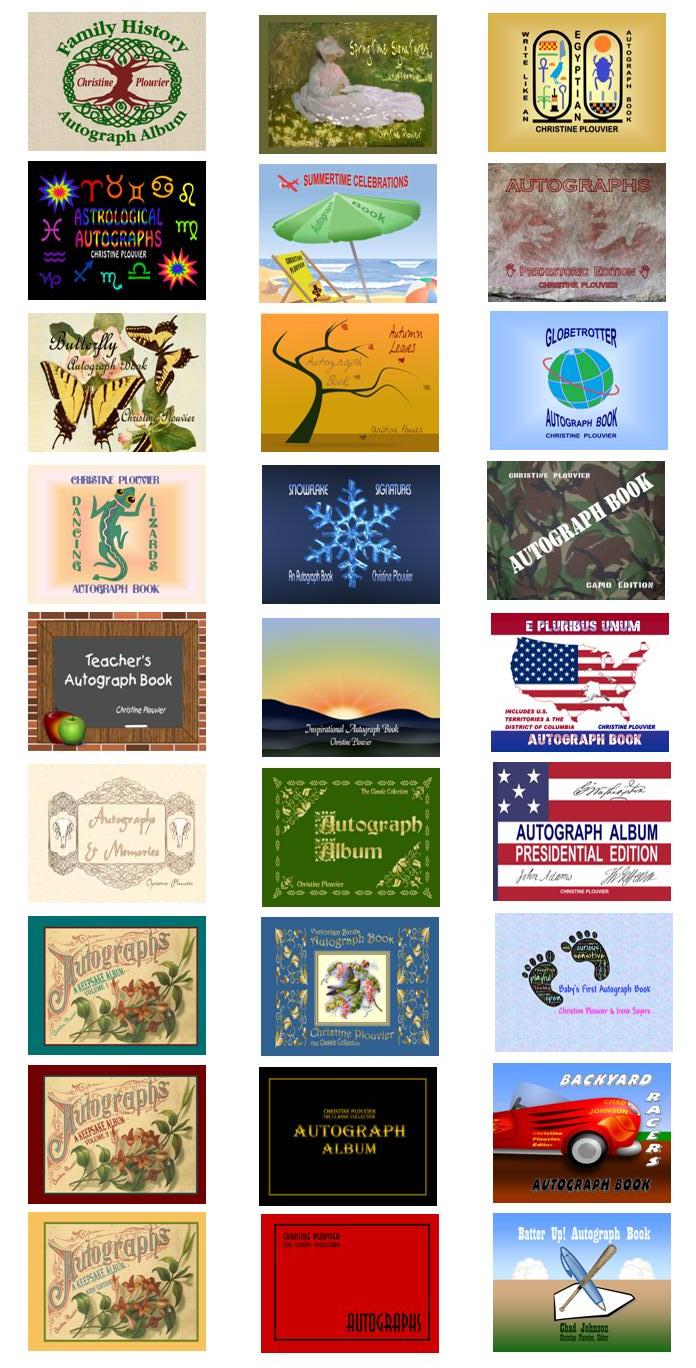We’re ready to examine Rule #2 of The 7 Reasonable Rules of Writing: Good grammar. Notice that I said good. You’ll recall that the ideal communication goal for spelling may be perfection, but that we settle for excellence, because of Murphy’s law. However, good grammar is sufficient to achieve the goal of our Art, which is communication.

 Writers who have difficulty communicating on real or virtual paper would be well-advised to consult some specialists. They include dictionaries (use an old one and a newer one), and grammar books. These are two grammars from my reference library.
Writers who have difficulty communicating on real or virtual paper would be well-advised to consult some specialists. They include dictionaries (use an old one and a newer one), and grammar books. These are two grammars from my reference library.
The grammars you use don’t have to be the most current editions. Anything that was published before or during your lifetime will work; but in order to learn what has stood the test of time, and will help you communicate best with the largest number of readers, consult only general grammars that were published at least 20 years ago, and cross-reference with your reasonably new dictionary, to verify current usage.
Specialty grammars, like this one, are helpful, too. A specialty book’s age may be an issue if you’re dealing extensively with historical matters that require usage from a specific period.
A specialty book’s age may be an issue if you’re dealing extensively with historical matters that require usage from a specific period.
Feedback from trusted, capable and experienced alpha and beta readers can also help here; however, be careful with generic ethnic readers. There may be significant regional differences in usage that can color their perceptions (e.g., not just any Irishman will do).
Note my use of the term, “consult.” Learn or review the rules that these books advocate, but the acid test is to choose the form of usage that suits your voice, category of writing (fiction or non-fiction), topic or genre, setting and character development.
 For example, most writing gurus and gatekeepers swear by Strunk.* I can live with much of what he and his student, E. B. White, had to say – when I’m writing academic papers. It’s important to know that Strunk’s book was a rubric he wrote for students in his classes to follow: it details his own pet peeves and preferences about parts of speech and their usage. Making up rules is the prerogative of teachers, and obeying them is the responsibility of students: You must learn how to be a successful follower before you can assume the role of an effective leader.
For example, most writing gurus and gatekeepers swear by Strunk.* I can live with much of what he and his student, E. B. White, had to say – when I’m writing academic papers. It’s important to know that Strunk’s book was a rubric he wrote for students in his classes to follow: it details his own pet peeves and preferences about parts of speech and their usage. Making up rules is the prerogative of teachers, and obeying them is the responsibility of students: You must learn how to be a successful follower before you can assume the role of an effective leader.
 Unfortunately, Strunk has been canonized by the gurus and gatekeepers, and his dicta and dogma are enthusiastically enforced – and mainly misapplied – by the Writing Art’s fifth column known as the Grammar Police. It’s kind of like the Framingham Heart Study: If you’re aged 30-62, it may well be advisable to adopt recommendations based on the study’s findings, but if you’re a pregnant woman, an infant, child or teenager, or an elderly person, your needs are very different to those of the study’s cohort.
Unfortunately, Strunk has been canonized by the gurus and gatekeepers, and his dicta and dogma are enthusiastically enforced – and mainly misapplied – by the Writing Art’s fifth column known as the Grammar Police. It’s kind of like the Framingham Heart Study: If you’re aged 30-62, it may well be advisable to adopt recommendations based on the study’s findings, but if you’re a pregnant woman, an infant, child or teenager, or an elderly person, your needs are very different to those of the study’s cohort.
Here’s an interesting take on why the diet and exercise regimen prescribed by Strunk & White may be bad for your writing health:
http://chronicle.com/article/50-Years-of-Stupid-Grammar/25497
Strunk (with or without his partner in crime) can be a very helpful reference for non-fiction writers to consult, in order to achieve the appearance of correctness that’s so important to academia. If you’re writing for that audience, by all means, adhere to what Strunk himself called, “the little book.” It will fill that limited bill.

 But if your Art is Fiction, your writing voice is your best judge. If you’re not sure what your writing voice sounds like, or how to use it to your best advantage, it these two books by Les Edgerton may help.
But if your Art is Fiction, your writing voice is your best judge. If you’re not sure what your writing voice sounds like, or how to use it to your best advantage, it these two books by Les Edgerton may help.
So, if you’re past the stage of learning – and you’re not writing for the inhabitants of Planet Strunk – but you find that your writing voice has become unnaturally squeaky, gravelly, or you’ve developed literary laryngitis, then you need to break the prescriptive and proscriptive bonds of the Grammar Police. Just use grammar that communicates.
One of the best ways to detect grammar problems is to enroll others of your senses in your proofreading. Read your writing aloud, and have it read aloud to you. If you don’t have a willing and able reader, send your writing through the Balabolka text-to-speech converter. Reading aloud usually clears up things.
 Occasionally, we all need to review the basics, especially when what we’ve written doesn’t seem to make sense. Sometimes, the best method to refresh your thinking is to diagram a few sentences. Wait! I heard you draw that deep breath! Before you start screaming, try this short, entertaining book by Kitty Burns Florey. It may change your mind, and give you a good tool to strengthen your writing.
Occasionally, we all need to review the basics, especially when what we’ve written doesn’t seem to make sense. Sometimes, the best method to refresh your thinking is to diagram a few sentences. Wait! I heard you draw that deep breath! Before you start screaming, try this short, entertaining book by Kitty Burns Florey. It may change your mind, and give you a good tool to strengthen your writing.
The Author as an Artist communicates by painting pictures with words. Spelling and grammar make up the paint we use in our Art. The next time we revisit the Rules, we’ll talk about how the paint is applied.
* Before reading Strunk, first read the last 5 paragraphs of E. B. White’s Chapter V in the revised edition (pp. 69-71 in the Macmillan 1959/1962 paperback, twenty-fourth printing, 1971).























I study one of the rules from The Elements of Style every morning. I just counted 23 books on my shelf on grammar that I’ve read at least 3 times.”Writing with Style” by John R. Trimble is a favorite as well as Susan Thurman’s ” The Only Grammar Book you’ll Ever Need.” Sometimes what seems hard in one book becomes clear in another.
LikeLiked by 1 person
By comparing different approaches to the same topic, we can better identify the underlying principle. Some developing writers may be confused by this approach, but with practice, everything gets better. Strunk & White is a good place to start, although Strunk does occasionally shoot himself in the foot, and we need to remember that White’s “style” is just one of many.
LikeLike
If I get stuck, I go through my books until I find something that makes sense. I’m proud that I even know when I’m in trouble. I can brake rules now on purpose to achieve tone. I had an editor change rode to ridden in one of my stories, I told him that cowboys don’t say ridden. “How many times has that horse been rode?” “It’s been rode twice.”
LikeLiked by 1 person
I love it! Your cowhands make me lonesome for Zane Grey. It’s been a long time since I went to that watering-hole. 🙂
LikeLike
I live in Price Utah. Grey spent some time here and heard a story about a local cowboy which he turned into “Riders of the Purple Sage.” I think about that when I’m standing in the sage. You have to catch it in the right light and look hard, then you see that it really is purple. Most people never see it.
LikeLiked by 1 person
In like vein, there’s more subtlety to Grey than many credit to him, although that might have been partly due to the editing his wife did. You can tell which of his books missed a date with her red pencil.
LikeLike
LOL, It was probably her that detected the subtle shade of purple.
LikeLiked by 1 person
You’re right about that: http://news.nationalgeographic.com/news/2012/09/120907-men-women-see-differently-science-health-vision-sex/
LikeLike
wow. She must have named the book.
LikeLike
Light a fire? You asked…for it… =)
http://holisticwayfarer.com/2013/07/31/the-writing-process-ii-from-the-grammar-mafia-part-3/
You’ll see why I enjoyed your post.
LikeLiked by 1 person
Oh, yeah! 😉 Misuse due to character development differs from misuse due to carelessness: the former keeps the writer’s voice from becoming an artificial larynx, but the latter keeps the reader from finishing the story.
LikeLike
“Literary laryngitis”… I love it! This was another excellent post with so many helpful references. I was one of the geeks that excelled at diagramming sentences, thought I won’t admit that to most. But sadly, so much “good grammar” of the past isn’t what’s popular now, or even recognized by a lot of younger people. I admire your dedication to stick to what’s right even if the rules have changed (for the worse). 🙂
LikeLiked by 1 person
Thanks! The “rules” that the gatekeepers have changed are only stylistic preferences, and trying to adhere to them is just an exercise in futility and frustration. Good grammar is what’s essential: it carries our beautiful words, like an oil, water or acrylic base carries pigments (I’m allergic to latex). 🙂 We’ve got to have it, or the meaning won’t stick to our word-paintings. A general grammar reference book is all we need, to help us mix our medium, as we take to the streets or countryside to create our ‘en plein air’ art.
LikeLiked by 1 person
Well, I think for the most part, you are exactly right. Sadly, I believe if we use adverbs we get knocked down a grade nowadays, which just makes me want to pull out my hair!
LikeLiked by 1 person
I know that I’m spitting into the wind about the Art vs Craft thing: I’m sure there are folks who think, “But Stephen King says it’s a Craft, right here, on the cover of his writing book!” Well, I enjoyed reading his memoir, and although I’ve never read his fiction, he and I are both “organic” writers, and the “I Write Like” utility (at iwl-dot-me) says “Irish Firebrands” is written in his style (sharing billing with James Joyce). But while he makes the right points about spelling and basic grammar, the rest of his advice is all stylistic preference, about which he says, “it’s all on the table, all up for grabs” (p. 196 in the Pocket Books 2001 reprint), and he admits to his breaking the adverb “rules.” He just happens to be wrong about Writing being a Craft. (No hard feelings, Stevie: we all put our pants on one leg at a time.)
So, leave your lovely red hair where it’s at, Rachel, and go ahead and enjoy your adverbs!
LikeLike
LOL! I often wonder if he wrote that book because he had writer’s block for stories. Hee hee. 🙂 And you go ahead and spit into the wind. I like your way of thinking. (Of course, if Bad, Bad Leroy Brown comes in, you better stop spitting.) 😉
LikeLike
Reading aloud is the best way to catch mistakes and decide on inflections. I like to proof the hard copy several times, too. I always find mistakes in the printout.
LikeLiked by 1 person
Isn’t it interesting that looking at a hard copy can do that? I printed a regular double-spaced manuscript, and a book fold version, too.
LikeLike
It must be the difference in how the brain processes the writing. I find that the hard copy slows me down, and there’s something about the mechanics of correcting a hard copy that I like. Not to mention having a corrected hard copy in your file could come in handy should you need to prove copyright.
LikeLiked by 1 person
Have you never registered a copyright? It’s cheap, easy, the certificate comes on safety paper, and the Library of Congress keeps a record of it, even if the Library doesn’t add to its collection the copies you have to send them.
LikeLike
I never have. I may in the future. Once something is in tangible form, it’s automatic anyway; however, it is recommended that you register published material. But you can do that after you’ve had a problem. If you register after somebody has stolen your work, you may get a little less settlement in court. I do know that if you keep a trail of your work, like keeping the first hand written draft, and corrected hard copies and a hard copy of what you sent out, it’s much easier to prove that you are the author. I’m not too worried about that at this point. I’m at least a year away from doing anything in book form. Right now I’m just pumping out essays to mags and trying to keep my name out there.
LikeLike
You’re correct that copyright is recognized in the US at the time of creation, but it’s only $35 to register (plus the cost of any required hard copy and postage), so I think it’s a good idea not to wait for piracy to happen first. I think that’s what’s behind the stringent “you have to prove to us that we infringed” policies of “sharing” websites: they’re capitalizing on authors’ reluctance to register, plus the siren song of “improve your Amazon ranking” by offering free or 99-cent access. If we give away work that hasn’t been registered, we’re asking for trouble.
For those who may be following this discussion, here’s a summary from the Library of Congress: http://www.copyright.gov/circs/circ01.pdf
LikeLike
I think you are right, but for smaller works it isn’t feasible, at least for me. I would register book length works in a heartbeat.
LikeLike
You’ll like this.http://www.thereviewreview.net/publishing-tips/saving-semi-colon-should-writers-use-or-avoi
LikeLiked by 1 person
*snort* If I were “Grammatically Ungrounded,” I would have demanded a refund for that online workshop. 🙂
LikeLike
LOL, I thought it was funny. I see a lot of writers who take themselves too serious. One thing I’ve noticed is, when people have a hard time getting published, they write a book on writing, and boom, they’re off giving seminars, hosting conferences, and teaching writing classes.
LikeLiked by 1 person
What I want to teach people, is to do what you’ve been doing: to take control of their own development as Writers. Authors are Artists. Books are not baskets. And if we’re not having fun writing, we’re not doing it right!
LikeLike
Yes! I write things that I would want to read. Story telling is the best way to sharpen skills, because there are many ways to tell the same story. I get requests for how to and where to articles, but that’s not what I want to write. I quit taking fishing mags thirty years a go because the had that same old boring stuff. Besides, I’m not telling them where I fish. 🙂
LikeLiked by 1 person
That’s a family secret, like hunting morel mushrooms or wild asparagus! 😉
LikeLike